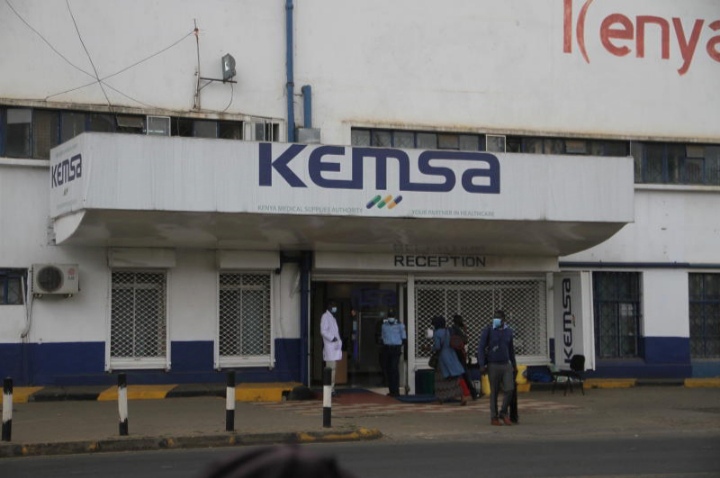The Kenya Medical Supplies Authority (KEMSA) finds itself in the spotlight once again as Members of Parliament (MPs) have reopened investigations into the Sh63 billion medical equipment lease scandal. This move comes in response to mounting complaints from governors regarding the deteriorating condition of medical equipment leased to public hospitals across the country.

During a session of the National Assembly’s Public Investment Committee (PIC), it was revealed that KEMSA had engaged in questionable practices during the procurement of essential medical supplies/photo courtesy/
Mvita MP Abdulswamad Nassir stated, “We need to ensure that every shilling allocated for health care is accounted for and used effectively.”
His remarks reflect the urgency with which lawmakers are approaching this investigation, as public trust in government institutions continues to erode.
The scandal has its roots in a series of corruption allegations that have plagued KEMSA for years. Reports indicate a disturbing pattern of mismanagement and financial irregularities, particularly during the COVID-19 pandemic when KEMSA was responsible for procuring vital supplies. Documents presented to the committee revealed that contracts were awarded to companies that did not meet necessary qualifications, leading to substantial financial losses for the government.
Suspended KEMSA CEO Jonah Manjari testified before the committee, revealing that “We received numerous calls and messages from senior officials pressuring us to award tenders without following due process.”
This admission underscores a broader issue of political interference in procurement processes, with allegations that Health Cabinet Secretary Mutahi Kagwe and Principal Secretary Susan Mochache were among those exerting undue pressure on KEMSA officials.
The ongoing investigation has attracted significant public attention, especially given previous scandals involving KEMSA. The Office of the Auditor General has flagged discrepancies in stock balances and missing medical supplies, raising serious concerns about accountability within the authority.
One MP remarked, “Kenyans have lost billions due to corruption at KEMSA,” highlighting the urgent need for reform.
As MPs delve deeper into these allegations, they are advocating for comprehensive reforms within KEMSA to enhance transparency and accountability in procurement practices. Recommendations include strengthening internal controls and establishing a central procurement agency to oversee all government health supplies.
This renewed inquiry comes at a time when public confidence in government institutions is waning, particularly within the health sector. The COVID-19 pandemic has exacerbated existing issues related to corruption and mismanagement, leading to widespread disillusionment among citizens who rely on public health services.
In light of these developments, Health Cabinet Secretary Nakhumicha has called for immediate action to address these issues.
She stated, “We must take decisive steps to restore integrity and trust in our healthcare system.” This sentiment resonates with many Kenyans who have suffered due to inadequate medical services and rampant corruption.
The implications of this investigation are far-reaching, as it not only seeks to hold those responsible accountable but also aims to restore faith in Kenya’s healthcare system. As the PIC continues its work, it remains crucial for stakeholders to advocate for systemic changes that will prevent future corruption and ensure that public health resources are managed with integrity.
In conclusion, as KEMSA faces renewed scrutiny over its operations, it is clear that comprehensive reforms are necessary to address deep-rooted issues within the authority. The ongoing investigations serve as a vital step towards ensuring accountability and improving health service delivery across Kenya.



















